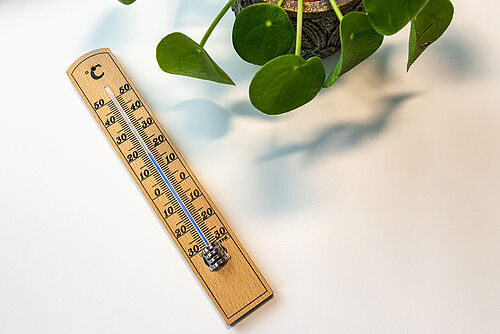In addition to the measures that are being implemented by the Administration, there is also a lot that individuals can do. Read on to find out which measures are relevant to you. You will also find a few suggestions as to how you as a staff member can help your University save energy.
One measure that will probably affect most staff members is the general reduction of room temperatures. The University Administration is aware that this has a significant impact on individual levels of comfort. Please come to work prepared for this.
With the help of our energy cost budgeting policy, we have already made significant savings since 2014. We can all be proud of what we have achieved. At the same time, however, we know that our goal of cutting a further 20% of our heating and electricity consumption will be difficult to achieve. We must rely on your cooperation. We would be delighted if a University-wide debate on suitable measures that could be implemented would develop.
Do you have an idea or best practice solution for saving energy? Feel free to contact us.
To view content restricted to members only at the bottom of the page, please log in below.

Plan access to buildings in such a way that side entrances without a draught lobby are not used. Try to organise deliveries so that entrances have to be opened for as short a time as possible.